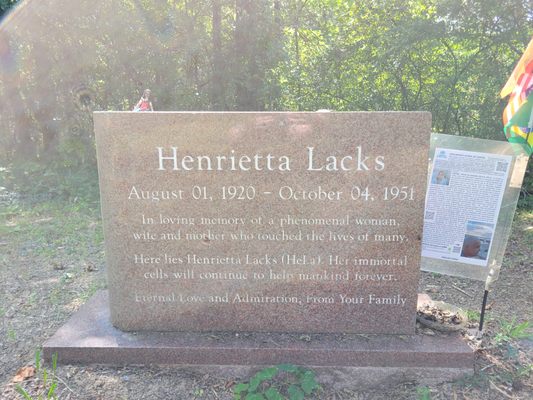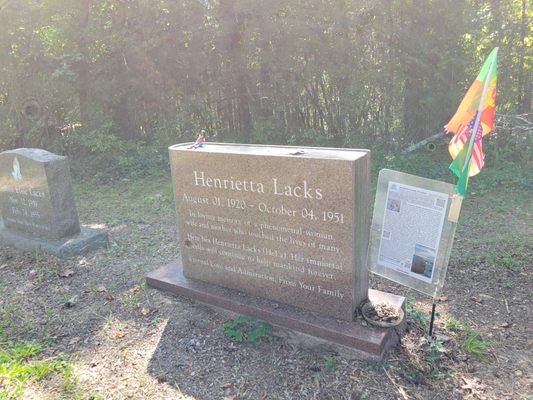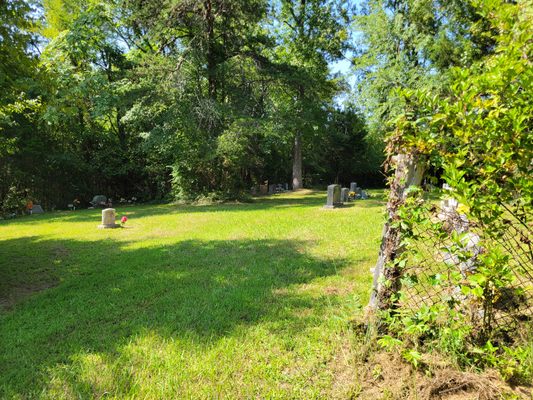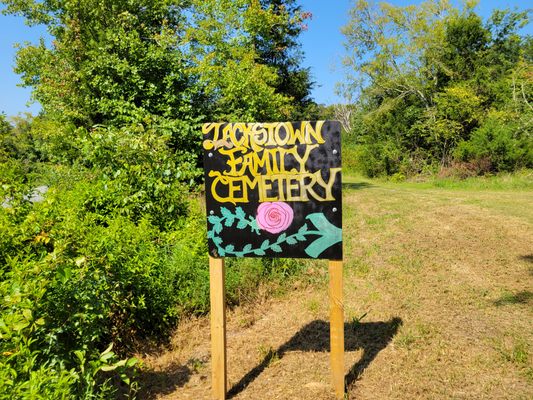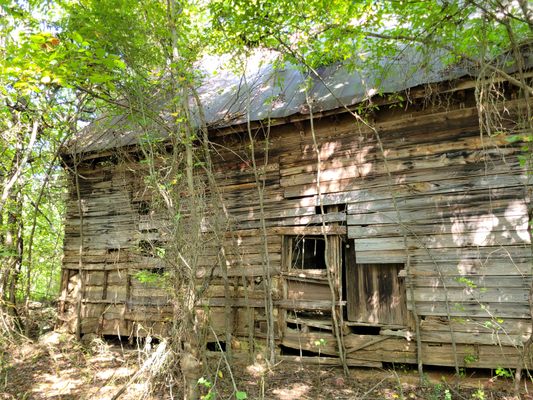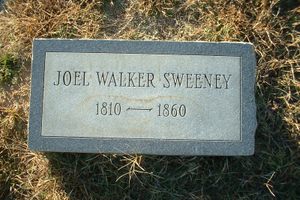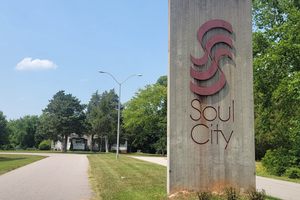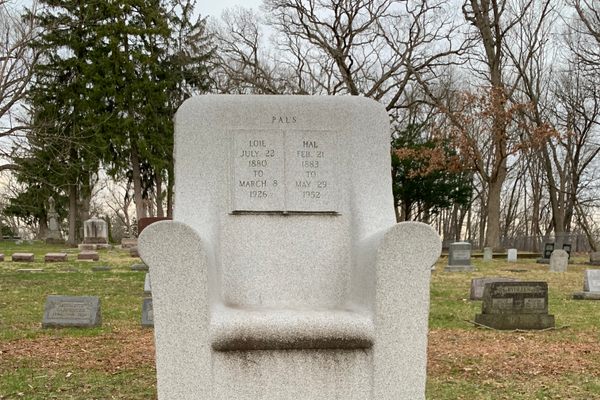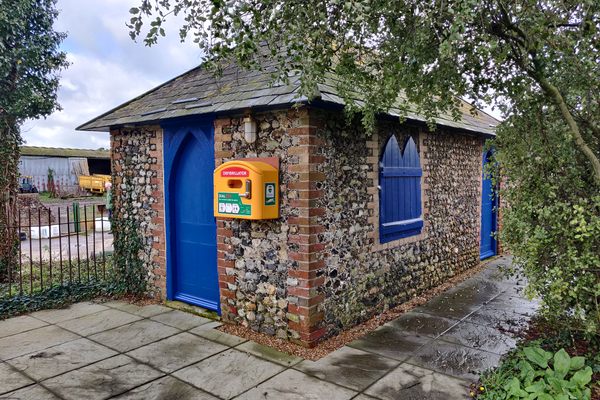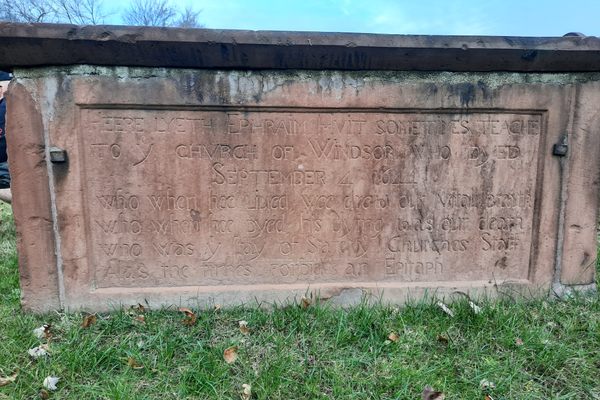About
Henrietta Lacks' date of passing on her gravestone reads October 4, 1951, but in some regard, Lacks is immortal. During her cancer treatment, some of Lacks' cells were nonconsensually extracted and cultivated, becoming the first immortalized human cell line, called HeLa.
Lacks was born in Roanoke, Virginia, in 1920, but she would spend much of her life 90 miles away in the tobacco-growing town of Clover. Later in life, she and her husband relocated to Maryland.
In 1951, Lacks suffered vaginal bleeding and visited Johns Hopkins, which was one of the only hospitals in the area that would admit Black patients at that time. Lacks was diagnosed with cervical cancer and underwent radium treatment.
It was here where Lacks' cervical tumor was biopsied and her cancer cells were sent to cell biologist George Otto Gey without her knowledge or consent, as was commonplace at the time. What set Lacks' cells apart from others was their unusual resilience: whereas other sample cells might die off in days, Lacks' cells reproduced indefinitely and doubled within a day. The HeLa line has proved critical in medical research, from the mapping of the human genome to the development of the polio and Covid-19 vaccines.
Henrietta's days were unfortunately numbered, and she passed away in 1951. Her surviving family received no financial compensation for the medical community's usage of Lacks' genetic material, nor were they even made aware of the existence of HeLa cells until decades later.
The capture and cultivation of Lacks' cells have raised numerous bioethical concerns and have called scientists to review the role of systemic racism in research as well as to consider the importance of informed consent. Lacks' story was again thrust into the public spotlight with the publication of the book The Immortal Life of Henrietta Lacks by Rebecca Skloot.
Lacks was buried in an unmarked grave possibly next to her mother's place of rest and near her childhood home in Clover. In 2010, Henrietta's final resting place was finally marked with a headstone.
Related Tags
Know Before You Go
From Mt. Laurel Road, turn up Lacks Town Road. After about half a mile, you'll see a sign on the right that says "Lackstown Family Cemetery." Take that grassy road up to the entrance of the graveyard.
Community Contributors
Added By
Published
October 3, 2024
